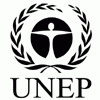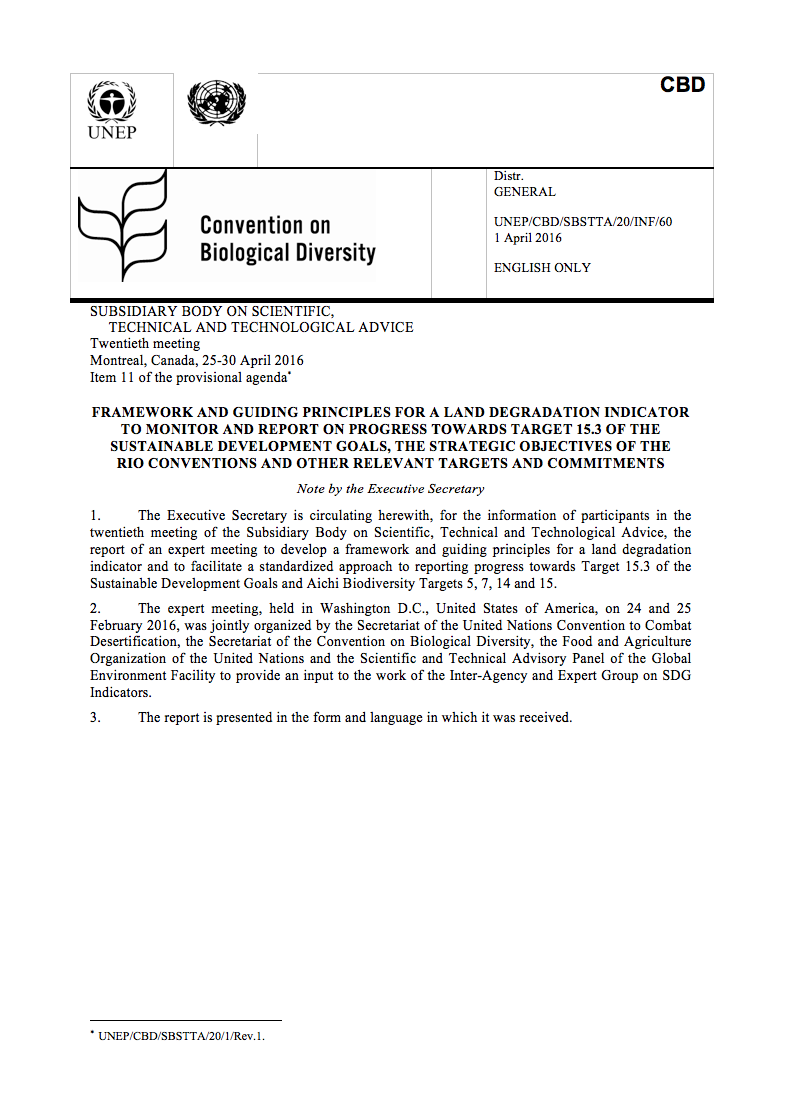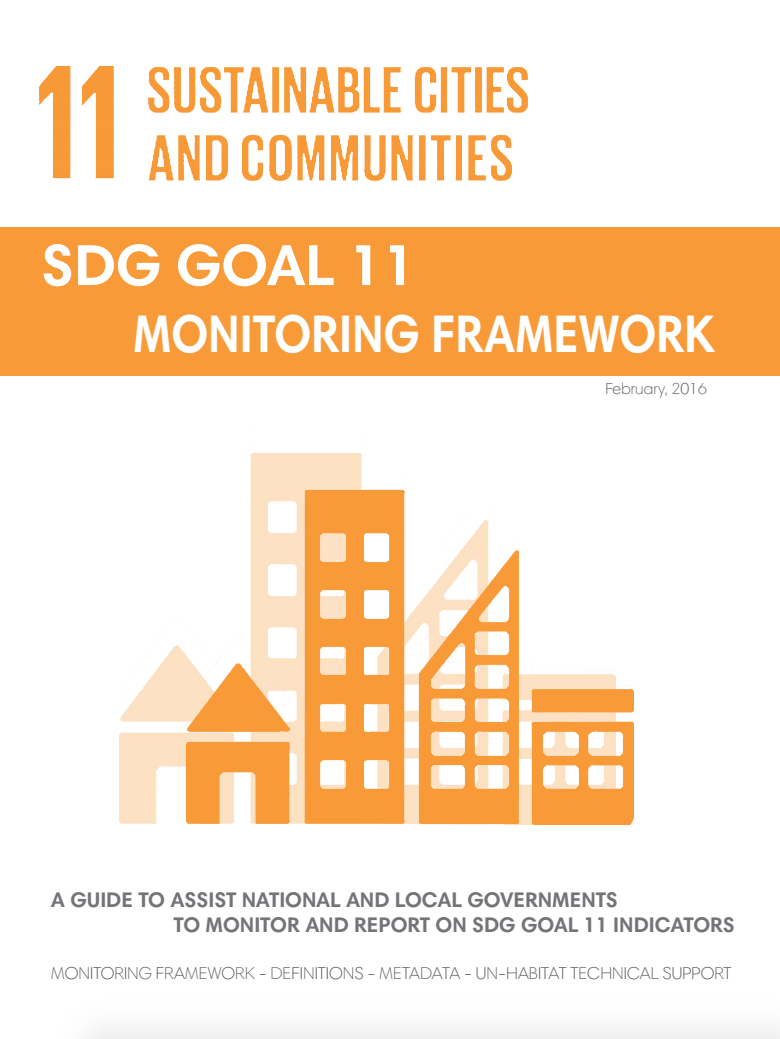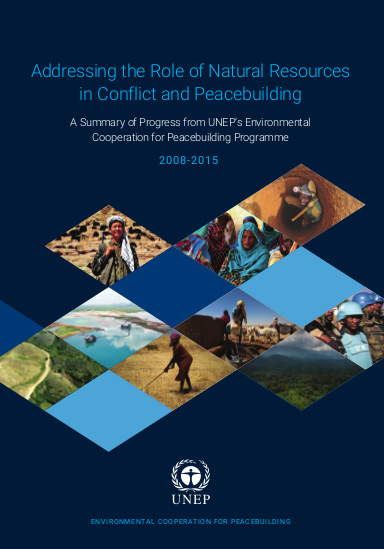The United Nations Environment Programme (UNEP) is the leading global environmental authority that sets the global environmental agenda, promotes the coherent implementation of the environmental dimension of sustainable development within the United Nations system and serves as an authoritative advocate for the global environment.
UNEP work encompasses:
- Assessing global, regional and national environmental conditions and trends
- Developing international and national environmental instruments
- Strengthening institutions for the wise management of the environment
Mission
"To provide leadership and encourage partnership in caring for the environment by inspiring, informing, and enabling nations and peoples to improve their quality of life without compromising that of future generations."
Members:
Resources
Displaying 21 - 25 of 106Unlocking the sustainable potential of land resources: Evaluation systems, strategies and tools
Land resources are one of nature’s most precious gifts. They feed us and help our societies and economies to thrive. Land resources are one of nature’s most precious gifts. They feed us and help our societies and economies to thrive. Some 2.5 billion agricultural smallholders worldwide manage around 500 million small farms, providing more than 80 per cent of food consumed in Asia and Sub-Saharan Africa. These resources are being degraded at an alarming pace.
Framework and Guiding Principles for a Land Degradation Indicator
Framework and Guiding Principles for a Land Degradation Indicator to monitor and report on progress towards target 15.3 of the Sustainable Development Goals, the strategic objectives of the Rio Conventions and other relevant targets and commitments
SDG Goal 11: Monitoring Framework
In September 2015, the United Nations Sustainable Development Summit adopted a new framework to guide development efforts between 2015 and 2030, entitled “Transforming our world: the 2030 Agenda for sustainable development”.1
PASTORALIST PARTICIPATION AND NETWORKING IN POLICY DIALOGUE: DIMENSIONS AND CHALLENGES
Pastoralists have a unique relationship of mutual dependency with their livestock and their environment; the uniqueness of this relationship distinguishes them from other livestock keepers. They depend highly on the environment where they develop their livelihood, that they make productive through highly adapted animals, but at the same time the quality of this environment depends on how well they take care of it, which in turns depends on complex social regulations and on large-scale mobility. The way they keep their animals forms part of their daily life and of a complex culture.
Addressing the Role of Natural Resources in Conflict and Peacebuilding
This report provides a comprehensive overview of the different outputs for each pillar and the results achieved. It also summarizes key lessons, with a future outlook for UNEP in the coming years under the ECP framework. ECP delivery partners and partnerships are also duly recognized. It also informs UNEP’s approach for address- ing con ict risks and peacebuilding opportunities from natural resources and the environment in the context of the 2030 Agenda for Sustainable Development, in- cluding the newly established Sustainable Development Goals (SDGs).






